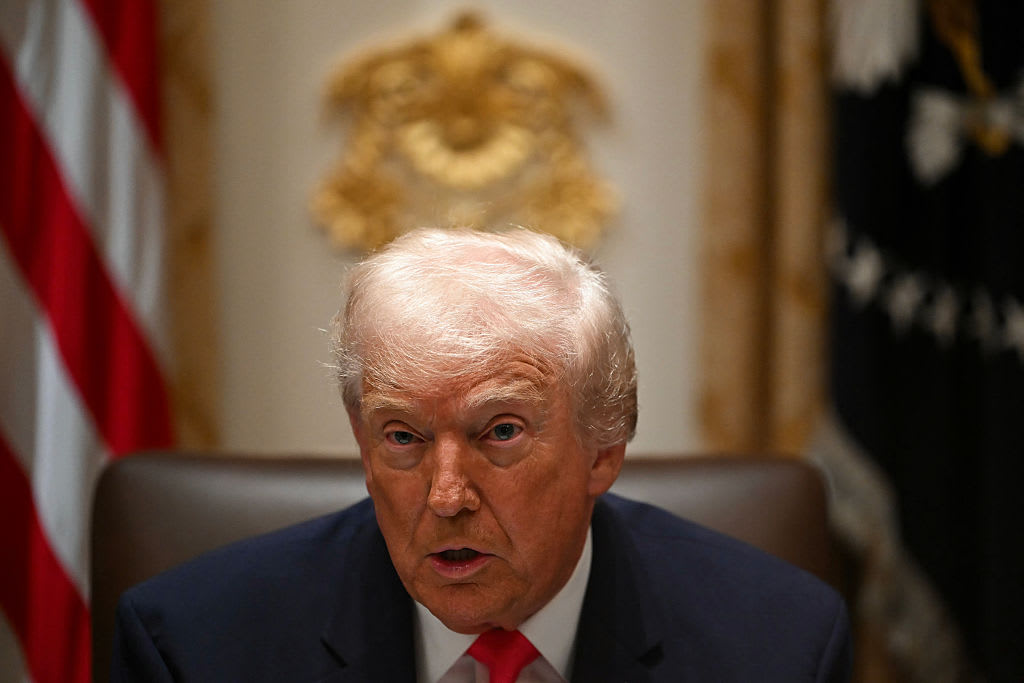Trump to unveil national security strategy
President Trump is laying out a new national security strategy Monday afternoon, one that he aims to square with his "America first" vision. He's expected to suggest that "America first" is not America alone -- there must be close cooperation with U.S. allies. According to excerpts of his remarks, he will also make several sharp references to Russia and China, which "challenge American power, influence, and interests, attempting to erode American security and prosperity." Both countries, he'll say, "are determined to make economies less free and less fair."
The president has sometimes criticized China -- mostly over the U.S. trade deficit -- but he has also spoken warmly of Chinese President Xi Jinping. He's even called him as a "very good" person, and he's relied on Xi to pressure North Korean leader Kim Jong Un over his nuclear program.
Mr. Trump will list North Korea and Iran as among the main challenges facing the U.S., according to excerpts of his speech.
"North Korea seeks the capability to kill millions of Americans with nuclear weapons. Iran supports terrorist groups and openly calls for our destruction," he's expected to say. "North Korea is also pursuing chemical and biological weapons which could also be delivered by missile."
The NSS contains very strong language on China, including references to its efforts to pull the Western hemisphere into its orbit through state-led loans and to dominate Africa both militarily and economically. The NSS refers to China as a strategic competitor, while recognizing areas of mutual cooperation, which are not mutually exclusive.
The strategy identifies four national interest "pillars": protecting the homeland, promoting American prosperity, peace through military, cyber and space strength, and advancing American influence. It's the practice of presidents to put together a national security strategy about every four years -- they've done so since Ronald Reagan presented his NSS in 1987. President Obama presented two, the most recent one in 2015.
Work began on the national security strategy eleven months ago, senior administration officials told reporters Sunday, and the president has been given progress updates throughout the course of the year. Cabinet officials, including CIA Director Mike Pompeo, DNI Dan Coats, Treasury Secretary Steven Mnuchin, Trade Representative Robert Lighthizer, among others worked on the strategy. A month before its completion, the president was briefed on the document, and he gave it his blessing. In the past week, Cabinet secretaries have had the opportunity to weigh in on the strategy as it relates to their own departments.
The Trump administration's NSS emphasizes a belief that the U.S. economic security is national security -- one official briefing reporters said that the strongest weapon the U.S. has is its GDP.
The president is also expected to acknowledge that cyberspace has become an increasingly critical front for the U.S., noting that for most of its history the country "has been able to protect the homeland by controlling its land, air, space, and maritime domains." Today, though, hackers inside and outside the nation's borders are able to attack U.S. interests "without ever physically crossing our borders." The president will promise to pursue "malicious cyber actors," according to his prepared remarks.
Climate change is not identified as a national security threat in the speech, but the importance of environmental stewardship is discussed. Officials said the climate language in the NSS was inspired by the president's Paris remarks, which they called his "guidepost" on climate. The phrase "climate change" does not appear in Mr. Trump's remarks as prepared, but there is a reference to its effects. While Mr. Trump has announced the U.S. would not participate in the Paris climate agreement, his speech acknowledges the reality that other nations believe that action should be taken to arrest and reverse the effects of climate change, and this will drive energy policy and subsequently, the business of energy.
"Climate policies will continue to shape the global energy system," Mr. Trump is expected to say, and therefore, he'll argue, the U.S. should lead in this energy space.
Officials say that Mr. Trump will also reaffirm the U.S. commitment to the NATO alliance.
When asked how this strategy is different from the strategies of prior presidents, one official said there is an increased focus on homeland security and the border. He said the economy also gets much more attention than in the past. "Economic security is national security," he said.
Officials also emphasized that the principles in the speech are not brand new, that they have been put into practice throughout the course of the year in Mr. Trump's other foreign policy decisions. They did say that the speech will touch on goals for the future.
CBS News' Margaret Brennan and Jillian Hughes contributed to this report.



